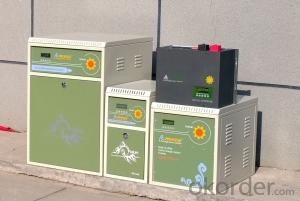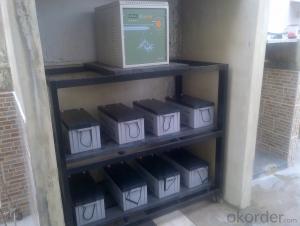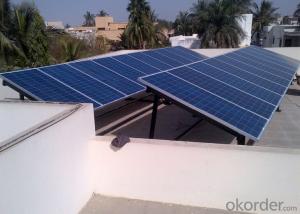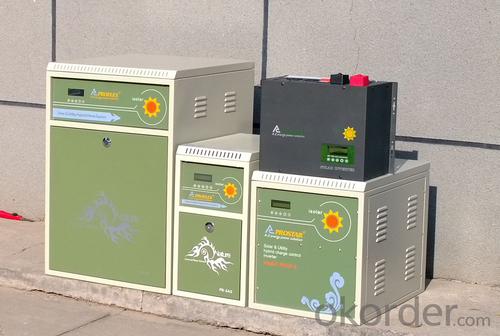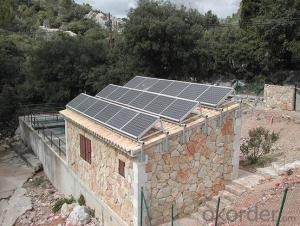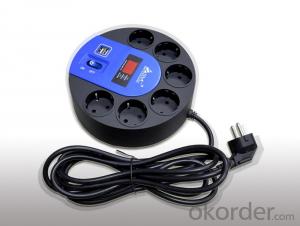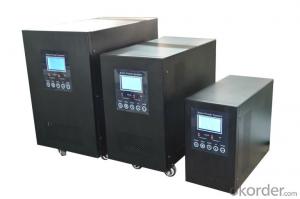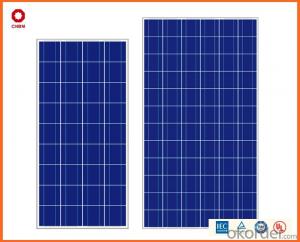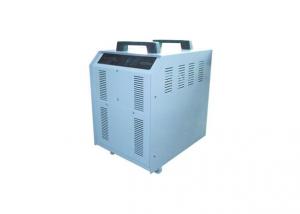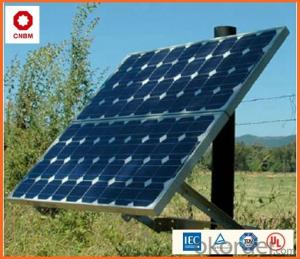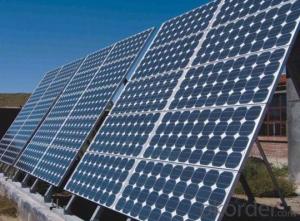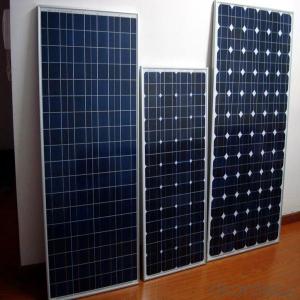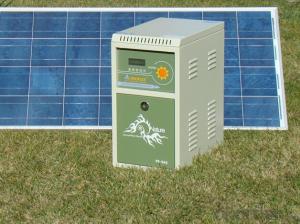150W Solar Panel Off Grid Sun Power System - Solar Energy Systems Canada
- Loading Port:
- Tianjin
- Payment Terms:
- TT OR LC
- Min Order Qty:
- 10 unit
- Supply Capability:
- 10000 unit/month
OKorder Service Pledge
OKorder Financial Service
You Might Also Like
Specification
AC solar power system consists of solar batteries, solar controller, battery, inverter components.
Used to solve rural or remote areas without electricity, such as highland, island, pastoral, villas, border posts and other military and civilian life electricity.
Daily use reference
TV 70W x 4 hours
Lighting 30W x 6 hours
Fan 50W x 6 hours
Laptop 60W x 2 hours
Total loading power: 210W
Total power consumption per day: 880Wh (0.88kWh/day)
Warranty
provides a 1~3 year limited warranty (“Warranty”) against defects in materials and workmanship for its Uninterruptible power supply, Power inverter/chargers, Solar charge controllers, Battery Products (“Product”).
The term of this Warranty begins on the Product(s) initial purchase date, or the date of receipt of the Product(s) by the end user, whichever is later. This must be indicated on the invoice, bill of sale, and/or warranty registration card submitted to us. This Warranty applies to the original MUST-Solar Product purchaser, and is transferable only if the Product remains installed in the original use location.
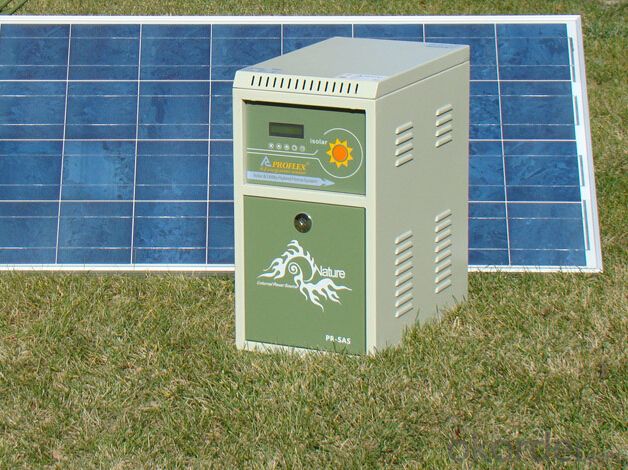
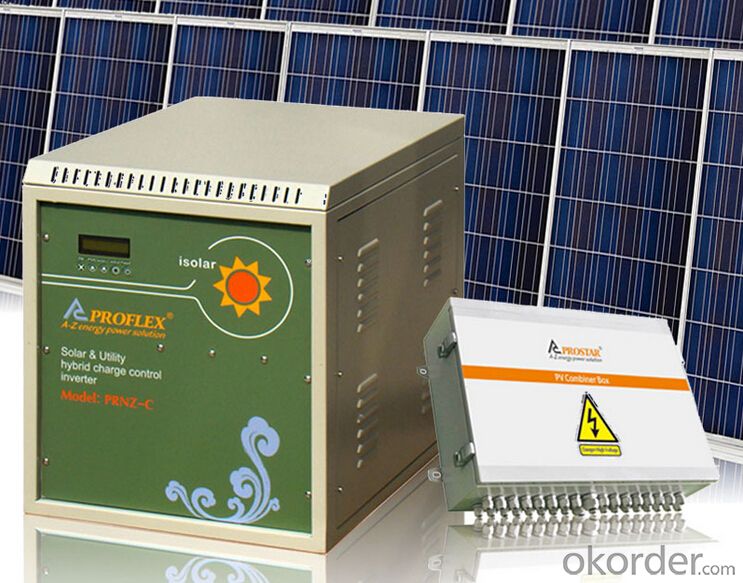
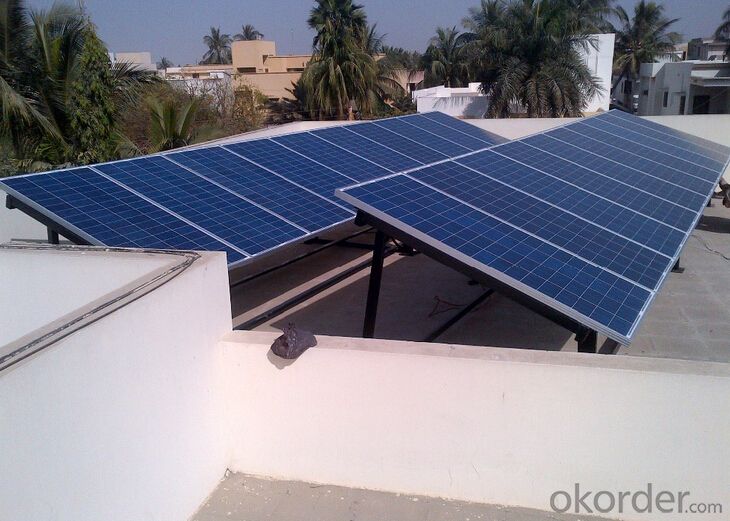
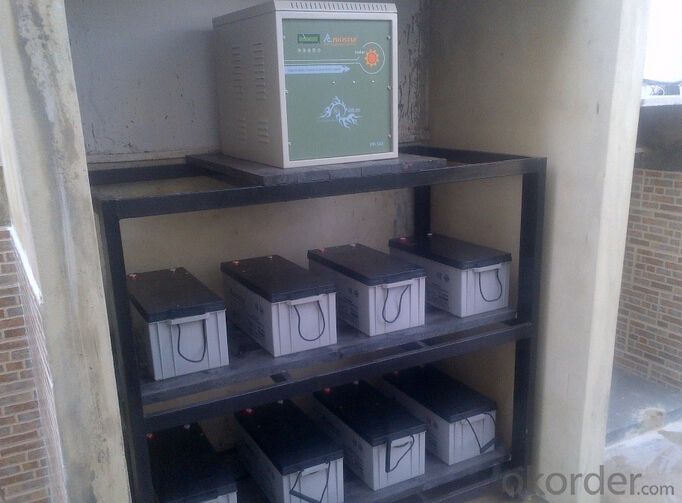
off grid sun power system
| Design Backup Time 5-6Hrs | |||
| Solar Module | Maximum power at STC(pm) | 150W solar panel(polycrystalline) 2pcs 75W,2pcs parallel | |
| Max.system charging voltage | 17.6V | ||
| Max.system charging current | 8.54A | ||
| Inverter | Output waveform | High frequency pure sine wave | |
| Continuous output power | 300W | ||
| Output voltage/frequency | 220V/50HZ | ||
| Charge controller | Syetem voltage | 12V | |
| Rated discharge current | 15A | ||
| Cabinet | Material | Steel box of zinc-plated and laquer-coated | |
| Battery | Type | Deep cycle | |
| System voltage | 12V | ||
| capacity | 1pcs 12V 100Ah | ||
| operating temperature | -20℃-+55℃ | ||
| Packing(CBM/KG) | Solar panel | 0.06CBM/20KGS | |
| Control box | 0.11CBM/21KGS | ||
| Battery | 0.02CBM/22KGS | ||
| Whole system | 0.19CBM/23KGS | ||
| Daily use reference | |||
| Name of load | Power | Working hours | Consumption |
| TV | 70W | 4hours | 280Wh |
| LAPTOP | 60W | 2hours | 120Wh |
| LIGHTING | 30W | 6hours | 180Wh |
| FAN | 50W | 6hours | 300Wh |
| TOTAL | 210W | 880Wh | |
FAQ
1. How do I decide which system is right for me ?
For protection from long outages, include a generator or solar panels in your Must solar system. Shorter outages can be handled by a battery-only system.
2. Where my system will be installed ?
Must solar systems are usually wall-mounted near a home's main electrical (circuit breaker) panel.
3. How do I install my system ?
A solar backup inverter is connected to a home electric system , we will supply detailed installation manual and videos for our customers .
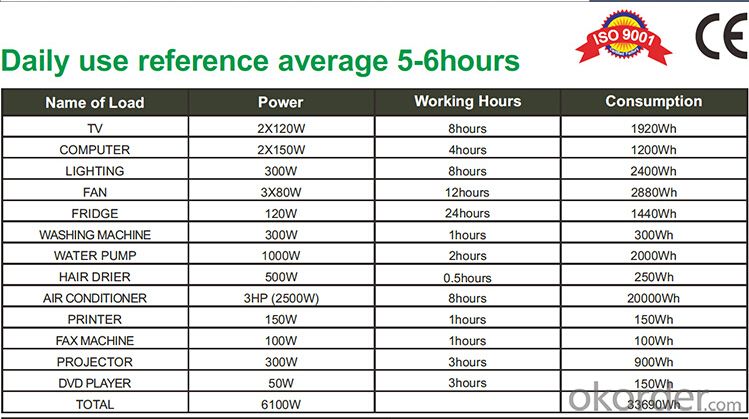

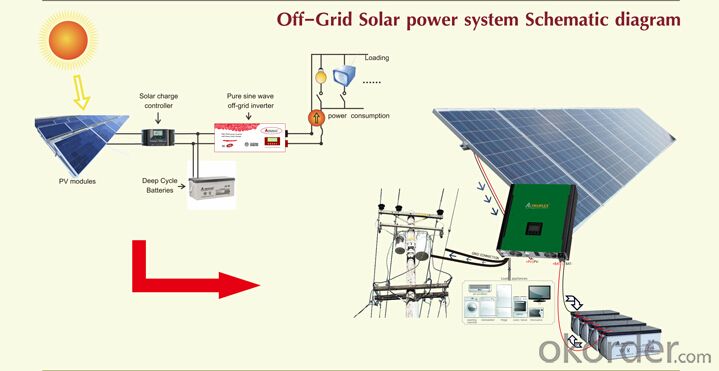
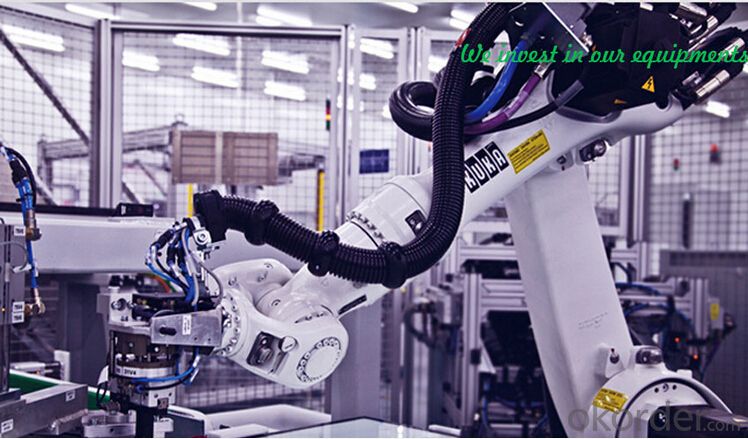


- Q: Can solar energy systems be used for powering greenhouses?
- Yes, solar energy systems can definitely be used for powering greenhouses. Solar panels can be installed on the roof or walls of a greenhouse to capture sunlight and convert it into electricity. This renewable energy can then be used to power various systems within the greenhouse, such as ventilation, heating, cooling, and lighting. Solar energy offers several advantages for powering greenhouses. Firstly, it is a clean and sustainable source of energy, which helps reduce greenhouse gas emissions and environmental impact. Secondly, solar power is reliable and abundant, especially in regions with ample sunlight. This means that greenhouses can have a consistent and uninterrupted power supply, even in remote or off-grid locations. Additionally, solar energy systems can help reduce operating costs for greenhouse owners. Once the initial investment in solar panels and equipment is made, the ongoing energy costs are significantly lower compared to traditional fossil fuel-based systems. This can lead to substantial long-term savings, especially for larger-scale commercial greenhouses. Moreover, solar energy systems can be integrated with energy storage solutions, such as batteries, to store excess energy generated during the day. This stored energy can then be used during cloudy periods or at night, ensuring a continuous power supply for the greenhouse. Overall, solar energy systems are a viable and sustainable option for powering greenhouses. They offer numerous benefits, including reduced environmental impact, reliable energy supply, cost savings, and the ability to integrate with energy storage solutions.
- Q: Are there any health risks associated with solar energy systems?
- No, there are no significant health risks associated with solar energy systems. Solar energy is clean and emits no harmful pollutants, unlike fossil fuels which contribute to air pollution and respiratory problems. However, it is important to follow proper installation and maintenance procedures to ensure safety and prevent accidents.
- Q: Can a solar energy system be used in areas with high winds?
- Yes, a solar energy system can be used in areas with high winds. However, it is important to ensure that the system is properly designed and installed to withstand the strong winds. This may involve using sturdy mounting structures, reinforced panels, and appropriate anchoring methods to secure the system.
- Q: Can solar energy systems be used in powering agricultural irrigation systems?
- Yes, solar energy systems can be used to power agricultural irrigation systems. Solar energy can be harnessed through photovoltaic panels or solar thermal systems to generate electricity or heat, respectively. This energy can then be utilized to power pumps, motors, and other components necessary for irrigation, reducing the reliance on grid electricity or diesel generators. Solar-powered irrigation systems are sustainable, cost-effective, and can be particularly beneficial in remote or off-grid agricultural areas.
- Q: How much space is needed for a solar energy system?
- The amount of space needed for a solar energy system depends on various factors, such as the energy requirements, type of solar panels used, and available sunlight. In general, a small residential system can typically fit on a rooftop, requiring around 100-400 square feet of space. However, larger commercial or utility-scale systems may require several acres of land to accommodate the necessary number of solar panels.
- Q: Can solar energy systems be used in areas with limited water resources?
- Areas with limited water resources can use solar energy systems effectively. Solar energy systems rely on the sun's radiation to produce electricity or heat, eliminating the need for large amounts of water. Unlike traditional power plants, which rely on water for cooling and steam generation, solar energy systems do not require water-intensive processes. Solar photovoltaic (PV) systems convert sunlight directly into electricity, and they operate without the need for water. These systems consist of solar panels that capture sunlight and convert it into electricity through the photovoltaic effect. Therefore, they can be installed in areas with limited water resources without any impact on their functionality. Solar thermal systems, on the other hand, use sunlight to heat a fluid, such as water or oil, which is then used for electricity generation or heating. While these systems may require some water for cleaning or maintenance, the water requirements are relatively low compared to traditional power plants. Additionally, advancements in solar thermal technology have led to the development of dry-cooling systems that significantly reduce water consumption. Furthermore, solar energy systems can be combined with other technologies to further minimize water usage. Solar-powered desalination plants, for example, can convert seawater or brackish water into freshwater through reverse osmosis, without relying on traditional energy sources or fossil fuels. This integration of solar energy and desalination can provide clean drinking water in areas with limited freshwater resources, alleviating the strain on water supplies. In conclusion, solar energy systems are suitable for areas with limited water resources as they primarily operate on sunlight and require minimal water for functioning. Using solar power not only reduces greenhouse gas emissions and dependence on fossil fuels but also addresses water scarcity issues in these regions.
- Q: Can solar energy systems be used for powering electric train systems?
- Yes, solar energy systems can be used to power electric train systems. Solar panels can be installed along the train tracks or on the rooftops of train stations to harness sunlight and convert it into electricity. This clean and renewable energy source can be utilized to charge the train's batteries or directly power the electric motors, reducing the reliance on fossil fuels and reducing carbon emissions.
- Q: Are there any environmental benefits to using solar energy systems?
- Yes, there are several environmental benefits to using solar energy systems. Firstly, solar energy is a renewable source of energy that harnesses the power of the sun, which means it does not deplete natural resources or contribute to climate change like fossil fuels do. Additionally, solar energy systems produce no greenhouse gas emissions during operation, reducing air pollution and improving air quality. They also have a minimal water footprint compared to other energy sources, helping to conserve water resources. Overall, solar energy systems help mitigate the negative impacts of traditional energy generation on our environment.
- Q: Can a solar energy system be used for charging electric vehicles?
- Yes, a solar energy system can definitely be used for charging electric vehicles. Solar panels, which capture sunlight and convert it into electricity, can be installed on rooftops, carports, or open spaces to generate clean and renewable energy. This energy can then be used to charge electric vehicles, eliminating the need for traditional fossil fuel-based charging methods. Solar-powered charging stations are becoming increasingly popular and are being installed in various locations, such as parking lots, highways, and residential areas, to support the growing demand for electric vehicles. By utilizing solar energy for charging electric vehicles, we can significantly reduce greenhouse gas emissions and dependence on non-renewable energy sources, thus contributing to a more sustainable and environmentally friendly transportation system.
- Q: Can solar energy systems be used in powering swimming pools or spas?
- Yes, solar energy systems can be used to power swimming pools or spas. Solar panels can be installed to capture sunlight and convert it into electricity, which can then be used to run the pool's pump, heater, and other equipment. This helps to reduce energy costs and reliance on traditional power sources.
Send your message to us
150W Solar Panel Off Grid Sun Power System - Solar Energy Systems Canada
- Loading Port:
- Tianjin
- Payment Terms:
- TT OR LC
- Min Order Qty:
- 10 unit
- Supply Capability:
- 10000 unit/month
OKorder Service Pledge
OKorder Financial Service
Similar products
Hot products
Hot Searches
Related keywords
